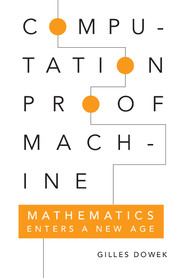Book contents
Introduction: In Which Mathematics Sets Out to Conquer New Territories
Published online by Cambridge University Press: 05 May 2015
Summary
it's been said again and again: the century that just ended was the true golden age of mathematics. Mathematics evolved more in the twentieth century than in all previous centuries put together. Yet the century just begun may well prove exceptional for mathematics, too: the signs seem to indicate that, in the coming decades, mathematics will undergo as many metamorphoses as in the twentieth century – if not more. The revolution has already begun. From the early seventies onward, the mathematical method has been transforming at its core: the notion of proof. The driving force of this transformation is the return of an old, yet somewhat under- rated mathematical concept: that of computing.
The idea that computing might be the key to a revolution may seem paradoxical. Algorithms that allow us, among other things, to perform sums and products are already recognized as a basic part of mathematical knowledge; as for the actual calculations, they are seen as rather boring tasks of limited creative interest. Mathematicians themselves tend to be prejudiced against computing – René Thom said: “A great deal of my assertions are the product of sheer speculation; you may well call them reveries. I accept this qualification.… At a time when so many scientists around the world are computing, should we not encourage those of them who can to dream?” Making computing food for dreams does seem a bit of a challenge.
Unfortunately, this prejudice against computing is ingrained in the very definition of mathematical proof. Indeed, since Euclid, a proof has been defined as reasoning built on axioms and inference rules. But are mathematical problems always solved using a reasoning process? Hasn't the practice of mathematics shown, on the contrary, that solving a problem requires the subtle arrangement of reasoning stages and computing stages? By confining itself to reasoning, the axiomatic method may offer only a limited vision of mathematics.
- Type
- Chapter
- Information
- Computation, Proof, MachineMathematics Enters a New Age, pp. 1 - 2Publisher: Cambridge University PressPrint publication year: 2015



